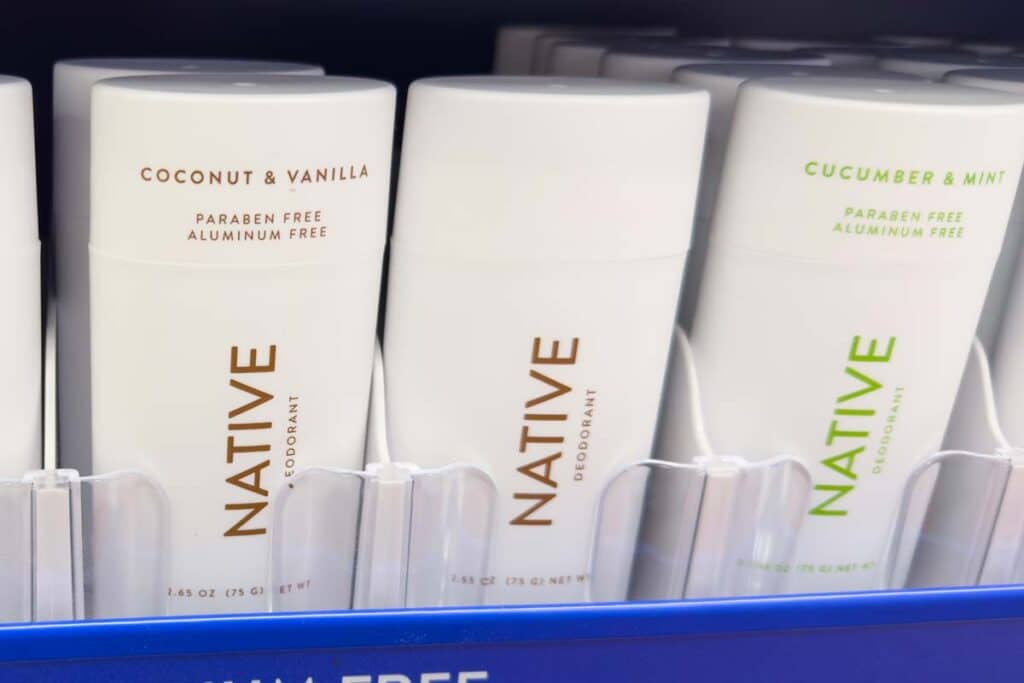
Overview of Class Action Lawsuit Against Native DeodorantsOverview of Class Action Lawsuit Against Native Deodorants Case: * Filed by two men against Procter & Gamble * Alleging false advertising of “72-hour odor protection” Details: * Plaintiffs claim Native deodorant products falsely claim clinical proof of 72-hour protection * The lawsuit alleges that Procter & Gamble charges higher prices due to the unsubstantiated claim Native’s Success Questioned: * Plaintiffs argue that Native’s success is built on false advertising regarding product efficacy * They claim that the company’s success is a result of misleading claims rather than genuine product performance Contradictory Instructions: * The product’s instructions mention reapplication “as needed,” which contradicts the marketing claim of 72-hour protection Damages and Remedies Sought: * Plaintiffs seek to represent anyone who purchased Native deodorant in Connecticut or New York * They allege violations of state and federal consumer protection laws * The class seeks damages, fees, costs, and a jury trial Related Cases: * In March, Unilever faced a $2 million settlement for claims of benzene contamination in Suave deodorants Plaintiffs’ Counsel: * James R. Denlea, Jeffrey I. Carton (Denlea & Carton LLP) * Philip M. Smith (Kravit Smith LLP) Case Information: * Class Action Lawsuit Over Native Deodorant * Ashton Hernandez et al. v. Zenlen Inc. trading as Native Cos. * Case No. 1:24-cv-04846 * United States District Court for the Southern District of New York

 (Photo credits: ZikG/Shutterstock)
(Photo credits: ZikG/Shutterstock)
Overview of class action lawsuit against Native deodorants:
- WHO: Two men have filed a lawsuit against Procter & Gamble.
- Why: The plaintiffs allege that the company Native deodorant falsely advertises that it provides “72-hour odor protection,” which they say has not been clinically proven.
- Where: The Native deodorant class action lawsuit was filed in federal court in New York.
Two men have filed a lawsuit against Procter & Gamble alleging the company falsely advertises its Native deodorant by claiming it provides “72-hour odor protection,” when that claim is not clinically proven, they say.
Plaintiffs Ashton Hernandez and Andrew Smyrak filed a class action lawsuit against Procter & Gamble in federal court in New York on June 26, alleging violations of state and federal consumer laws.
The men claim that Native charges significantly more than the competition, due to that allegedly incorrect claim.
Native’s Success Based on a Lie, Lawsuit Alleges
According to the lawsuit, Procter & Gamble’s marketing claims that Native whole-body deodorant spray lasts three days are completely untested. The plaintiffs allege that the company makes these claims despite allegedly never conducting clinical studies to test the claim.
“Instead, Native simply copied the ‘72-hour protection’ claim from a number of different deodorants on the market, added the false ‘clinically proven’ claim, and then charged over 100% more than its competitors based on that false claim,” the lawsuit says.
The deodorant sprays are sold at Target, CVS, Walmart, Walgreens and online at Amazon.com.
Since Procter & Gamble launched the line with its alleged false advertising, Native has expanded and is now one of the leading “natural” deodorants on the market, the plaintiffs say. However, the company’s success is based on a lie about the products’ clinical testing and results, they add.
72-hour claims ‘ridiculous’
The deodorant’s instructions state that consumers can apply it in the morning and reapply “as needed throughout the day,” a claim that directly contradicts the company’s marketing claim that it provides 72 hours of odor protection.
“In other words, Native makes the absurd claim that no matter how much spray a consumer uses, it should still provide 72 hours of odor protection,” the complaint reads. “However, the consumer is allowed to ‘reapply as needed throughout the day,’ which would undoubtedly be necessary given that the ingredients have no lasting effect on odor.”
The plaintiffs said they both bought Native deodorant spray for $14 after seeing and believing the 72-hour protection claim on the label. They say neither would have bought the spray in the first place, or at least would not have paid the high price for it, if they had known the claims were allegedly false.
The plaintiffs seek to represent anyone who purchased Native deodorant in Connecticut or New York. They allege violations of New York and Connecticut consumer protection laws. They are seeking certification of the class action, damages, fees, costs, and a jury trial.
In March, Unilever United States agreed to pay $2 million to end claims that the company sold Suave brand antiperspirant deodorant products that contained high levels of benzene, a cancer-causing chemical.
What do you think about the claims against Procter & Gamble? Let us know in the comments.
The plaintiffs are represented by James R. Denlea and Jeffrey I. Carton of Denlea & Carton LLP and Philip M. Smith of Kravit Smith LLP.
The Class Action Lawsuit Over Native Deodorant is Ashton Hernandez et al. v. Zenlen Inc. trading as Native Cos., Case number 1:24-cv-04846, in the United States District Court for the Southern District of New York.
Learn more about class actions and class action settlements: